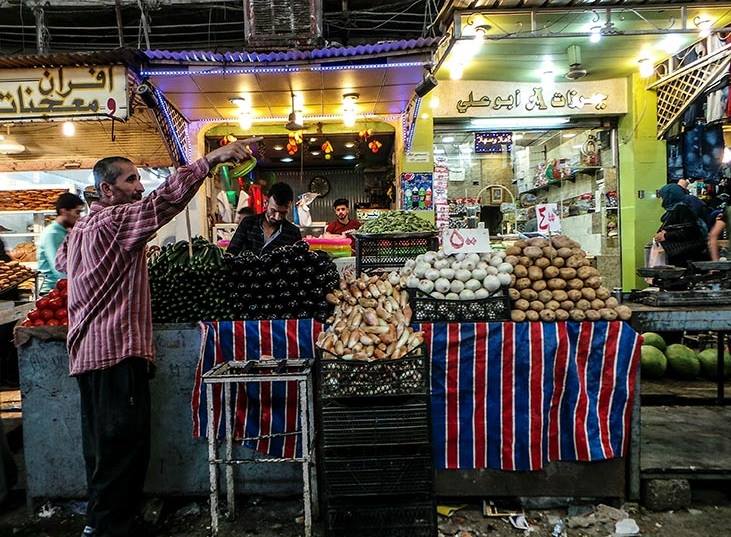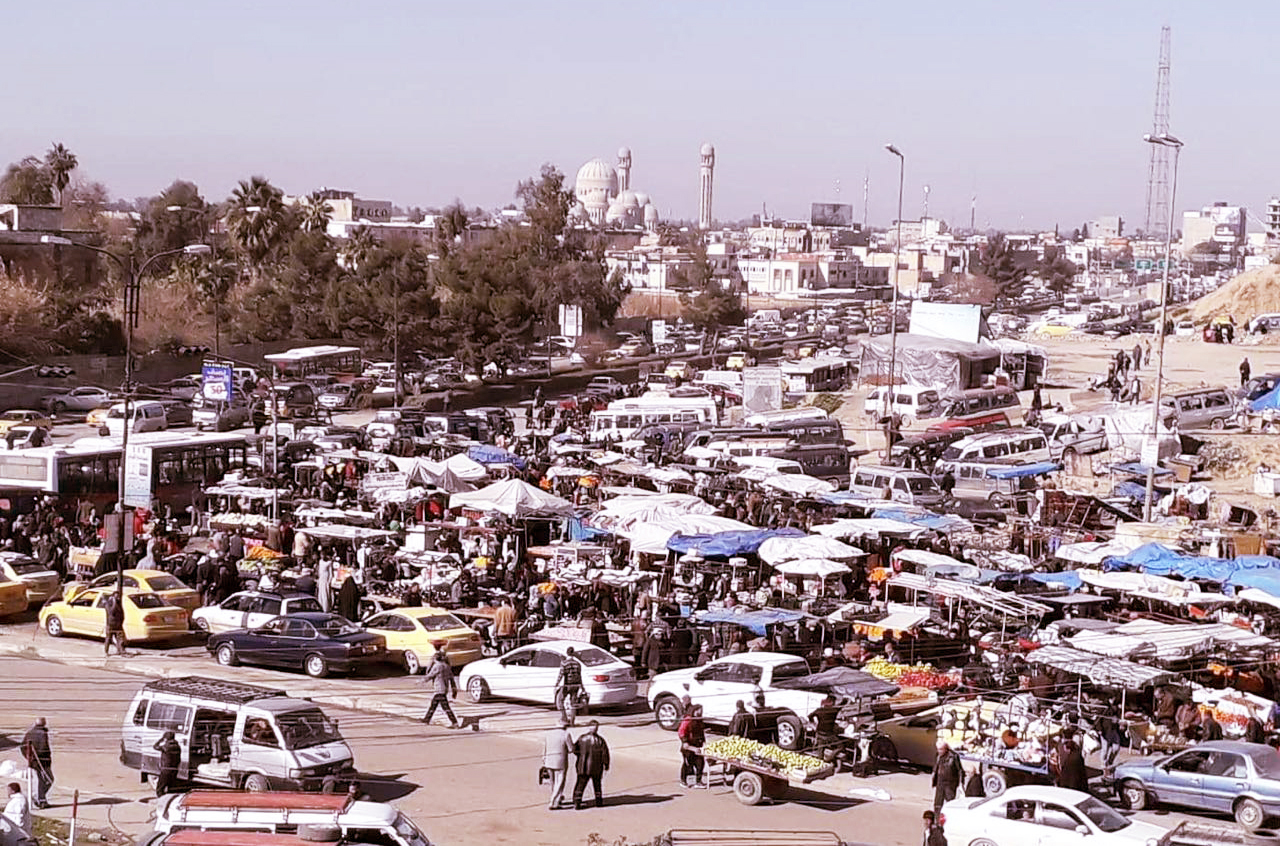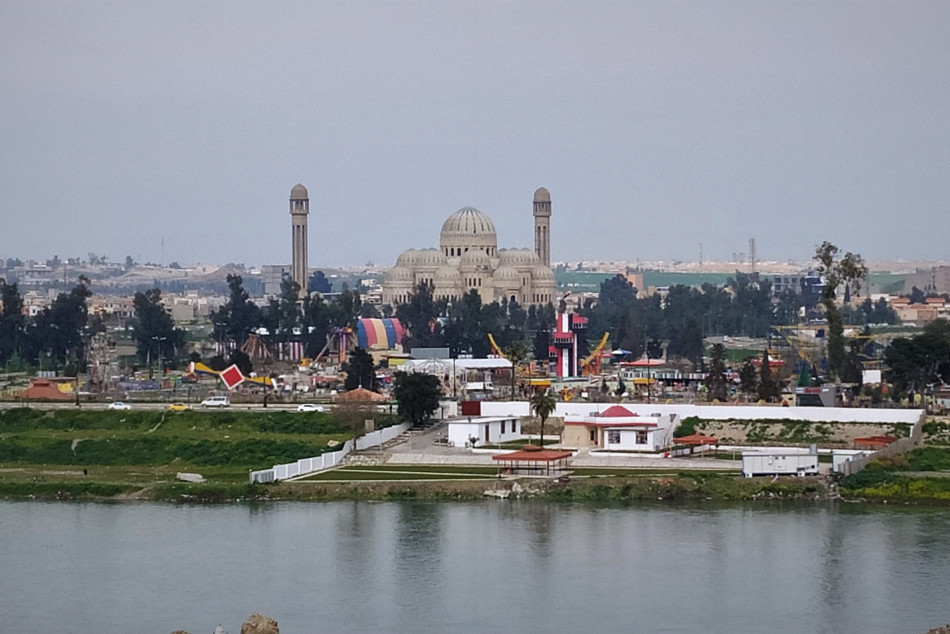Abdullah Goran was studying hard in preparation for high school final exams. He told his brother about his dream of joining college of medicine. Their mother interrupted them shouting "threat….threat."
Goran is now 33 and lives in Erbil Northern Province. He was born in Al-Jazair (Algeria) neighborhood of Mosul but he was forced to leave in 2009 when his family received threats for being Kurds, minority in the Arab dominant province amid the sectarian violence plagued Iraq following fall of Saddam regime in 2003.
Goran was watching the old photo album they could get from their home in Mosul then. "I was about to take final exams and apply for medicine to achieve my father and my dream but all turned upside down."
A militant group sent them a letter with two bullets asking them to leave immediately or they will be killed all. "They told us go out in your dress, if you take anything else you will be killed," Goran recalls the message. The family decided to leave house and household behind forever.
"They told us go out in your dress, if you take anything else you will be killed,"
After seven years of suicide bombings, Mosul, city of three million people, Mosul has long been a tinderbox of sectarian tensions that has allowed Jihaddist Sunni Muslim insurgency and in particular al-Qaeda to retain a foothold and terrorize residents.
Mosul, center of Nineveh province, was considered a microcosm of Iraq for its diverse ethnic makeup of Arabs, Kurds, Christians and Turkmen. As the city was trying to restore ordinary life, weakened insurgency shifted to drive-by shootings, murders and extortion.
The turbulent situation forced ethnic and religious minorities like Kurds, Ezidis and Christians, target to extremist insurgency, to leave the town of their grandfathers.
Kurds were the second largest ethnicity of Mosul making 33% of its population ahead of 2003 yet the federal and local governments were helpless ahead of the sectarian violence wave that left thousands killed and tens of thousands displaced.

Nabi (prophet) Younis bazaar in the left part of Mosul. Photo from KirkukNow archive.
Kochar, 27, works for a civil NGO. She says the best days of her life were in Mosul despite the fact that her family was the only Kurdish house in an Arab dominant bloc.
She still keeps the bracelet she received from her best class friend in primary school she keeps up today. "Our neighbors were just like relatives. We have been living in love and intimacy."
"Our neighbors were just like relatives. We have been living in love and intimacy."
A brother of Kochar was Peshmarga (Kurdish fighter). This posed them to a direct threat of militants so they decided to migrate alive. Kochar is eager to meet again with her friend she left 17 years ago to reside in Zakho district of Duhok Northern Province.
Local and federal relevant authorities could not keep a record of the multi ethnicity of Nineveh in general and Mosul in particular. Omar al-Harbawi, an independent politician, says Kurds were about 900,000 in 2003 which fell to 200,000 when Islamic State ISIS took over Mosul in 2014.
"Withdrawal of the Kurds left a big gap and will negatively reflect on Mosul," Harbawi said.
Kurds used to live in neighborhoods of Al-jazair, Arbajia and Nabi Younis Bazaar downtown yet those in the outskirts are still living peacefully in their hometowns.
"Kurdish brothers were obliged to leave their shops after invasion of Mosul following Daesh control and never made it back."
Abu Younis, 40, who works in textile business, says Mosullis used to call Nabi Younis Bazaar as Kurds' Bazaar as the majority traders and store keepers were Kurds. Abu Younis was deeply touched when his "Kurdish brothers were obliged to leave their shops after invasion of Mosul following Daesh control and never made it back."

January 2019: Downtown of the left part of Mosul. Photo by Ahmed al-Zaidi.
Civil society activists blame the NGOs for targeting the return of Christian and Ezidi minority yet paying no attention to any initiative urging the return of the Kurds.
"Organizations and volunteer teams have offered almost nothing to our Kurdish brothers," said Ahmed al-Ma'adhidi, human rights activist. "We as activists and NGos were derelict toward our brothers and partners."
The Mosulli activist believes proper environment on the ground to ease their return requires governmental and non-governmental efforts. "Peaceful coexistence is not mere slogans here and there."
"Peaceful coexistence is not mere slogans here and there."
Others believe that media played a negative role in as hatred speech widened the social crack. "I wish that media outlets could have united their discource after liberation of Mosul to refrain from hate speech alike civil society NGOs," said Fatin Al-Ali, a civil society activist from Mosul.
Alike the Kurds, Christians and Ezidis paid thousands of casualties for the sectarian violence in Nineveh as still tens of thousands still live in IDP camps in the semi-autonomous Kurdistan region.
Four years following ousting ISIS from Mosul, return to Mosul has become a far reach ambition despite the relative stability and security. Goran is now working in a fast food restaurant as he could not get his degree for the difficult living conditions they passed through.
"Every time Mum says I wish we could see Mosul even for few minutes to smell





